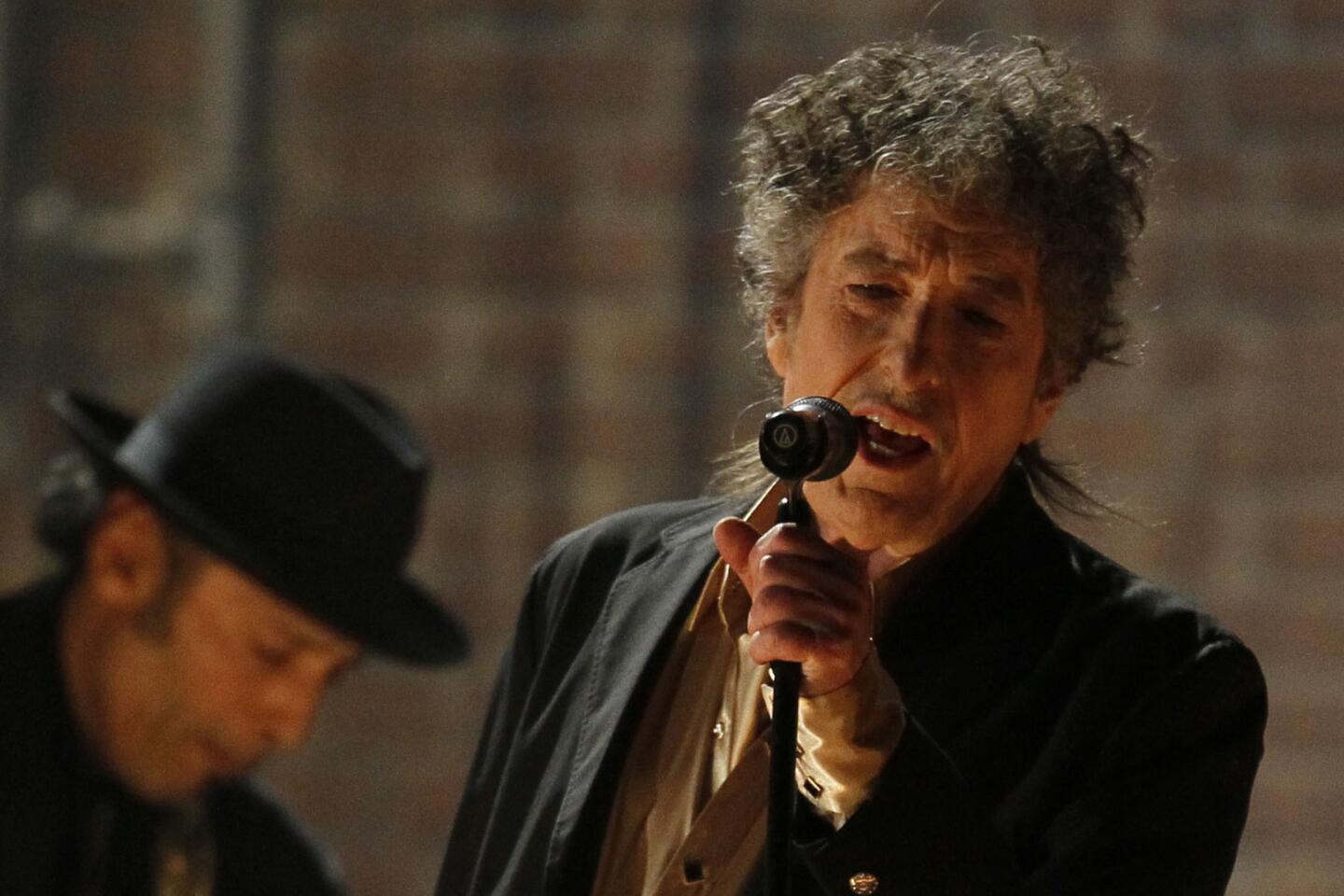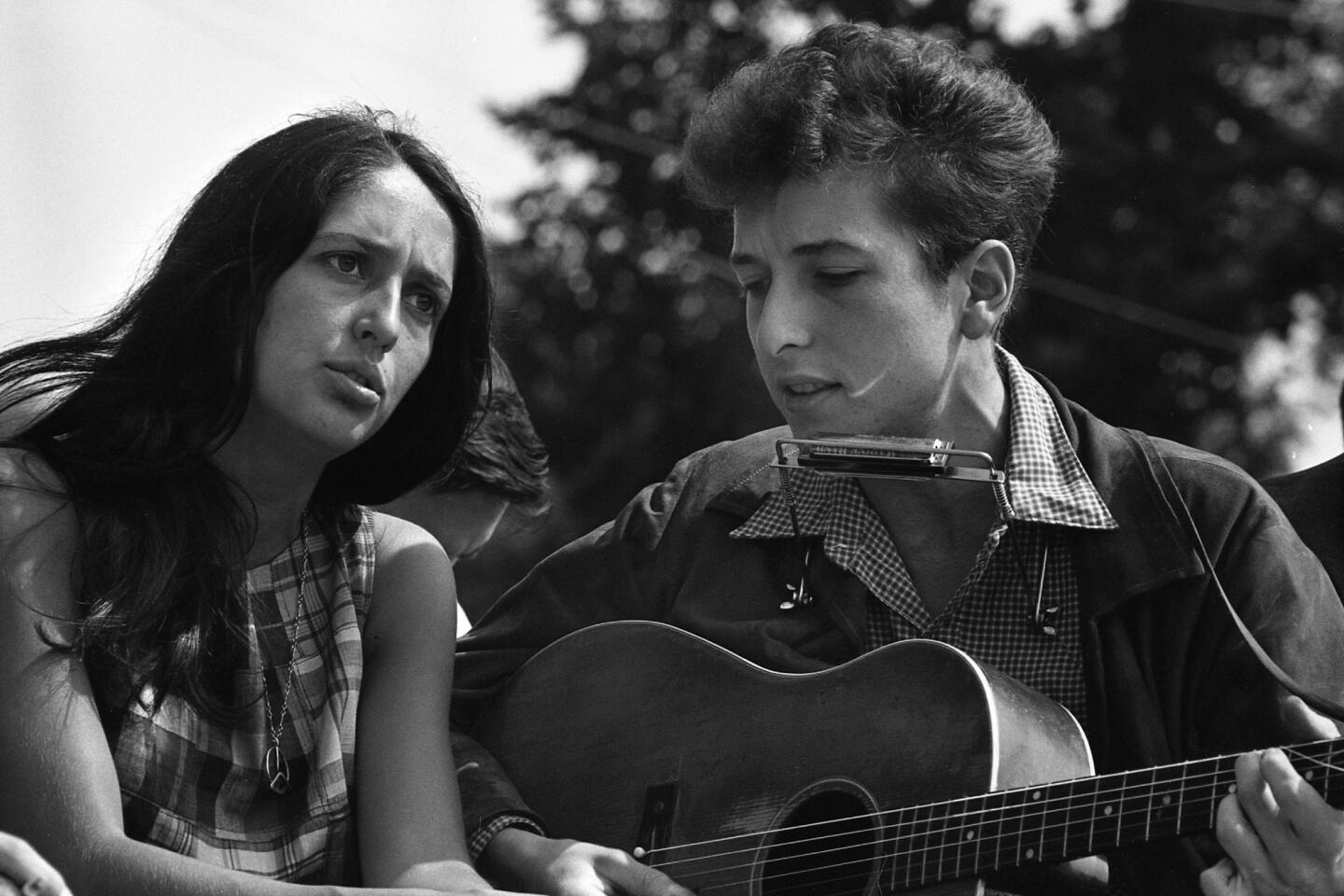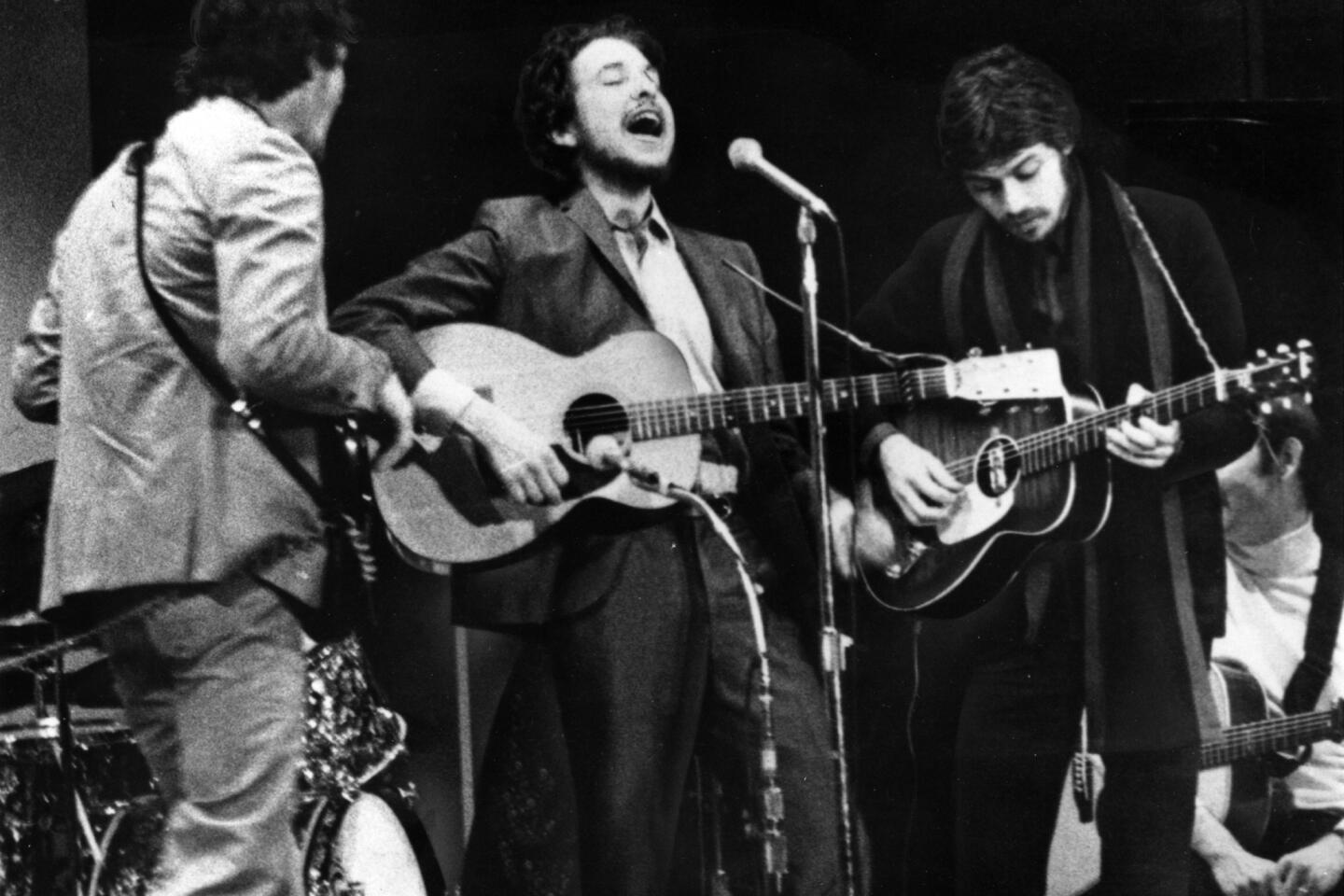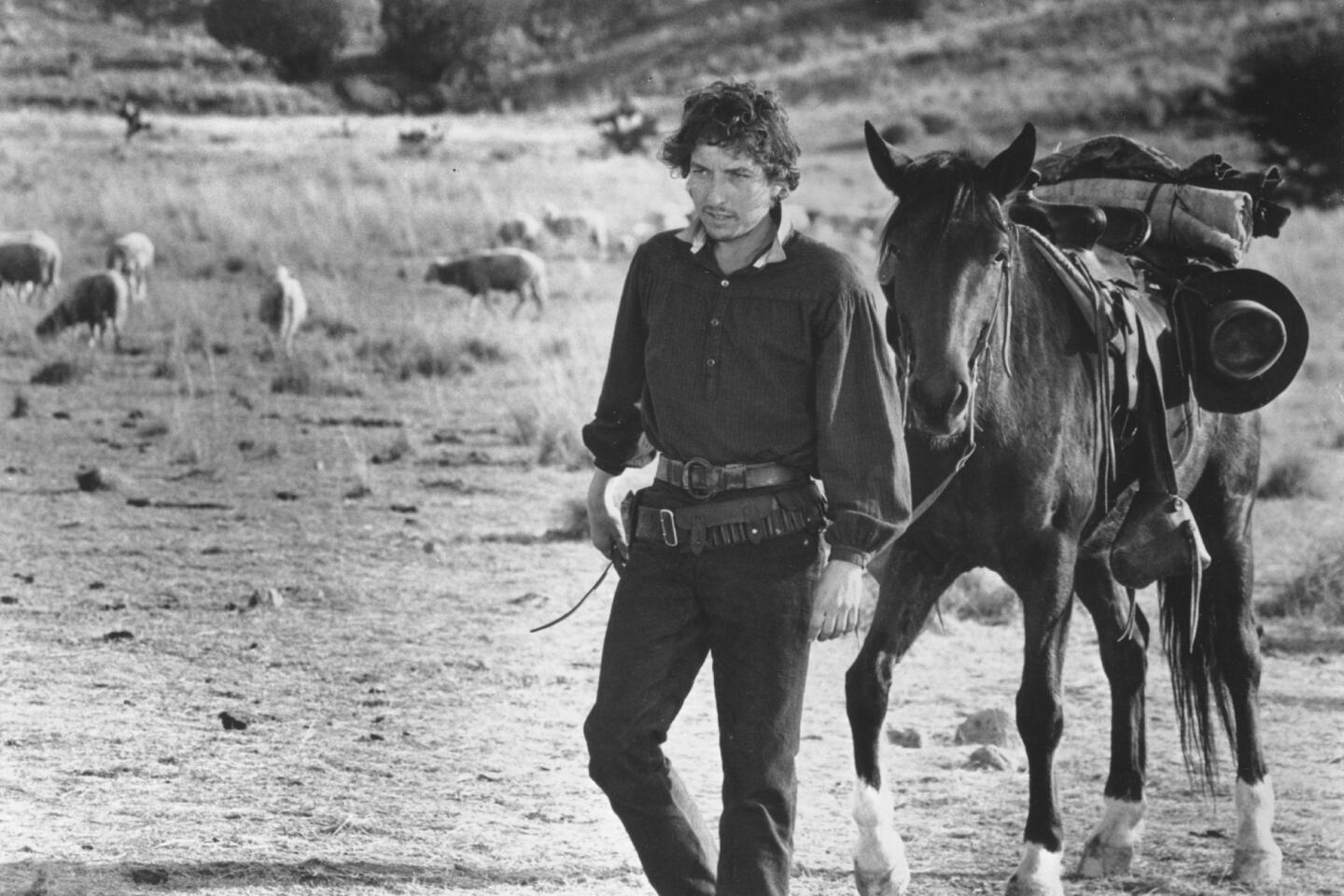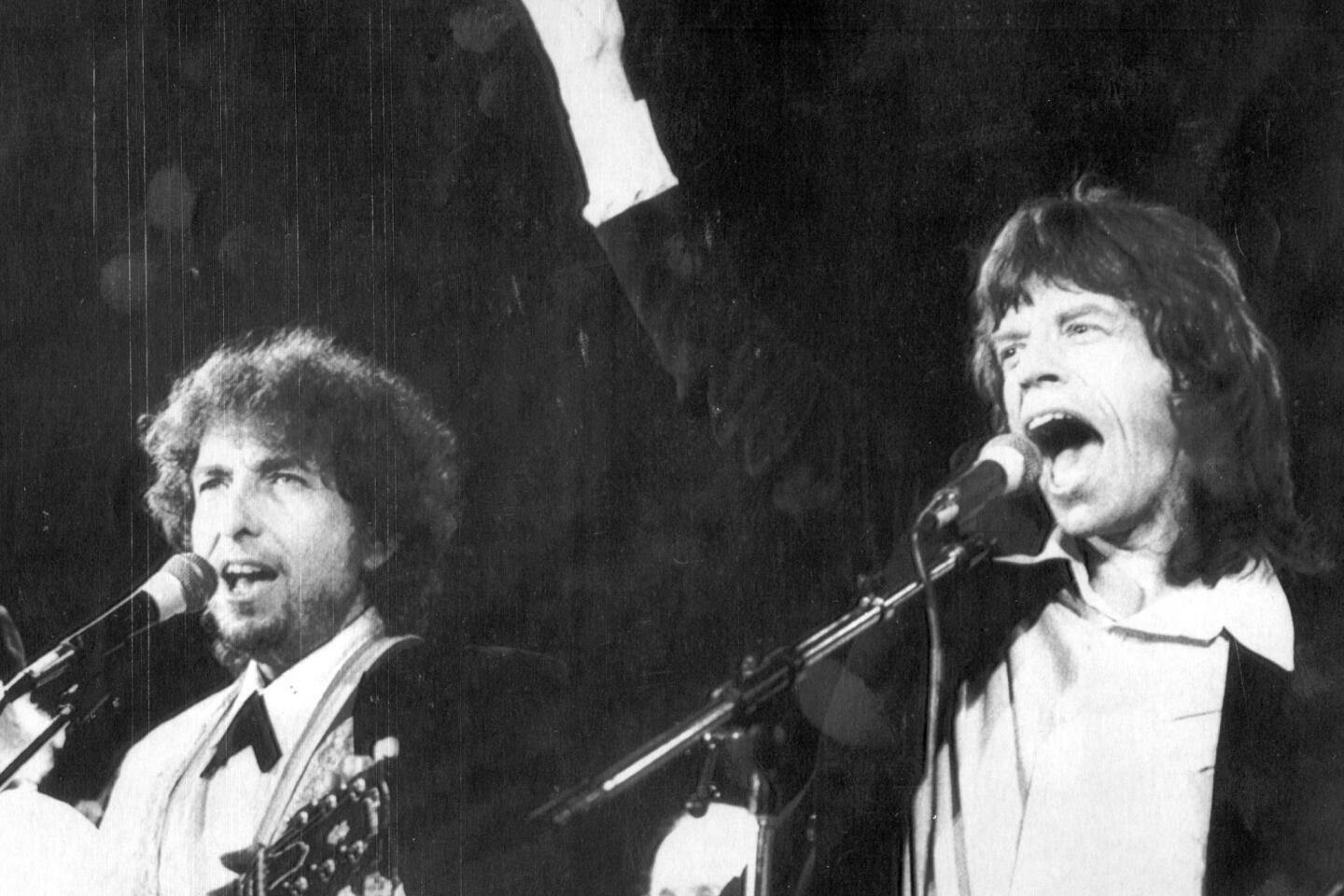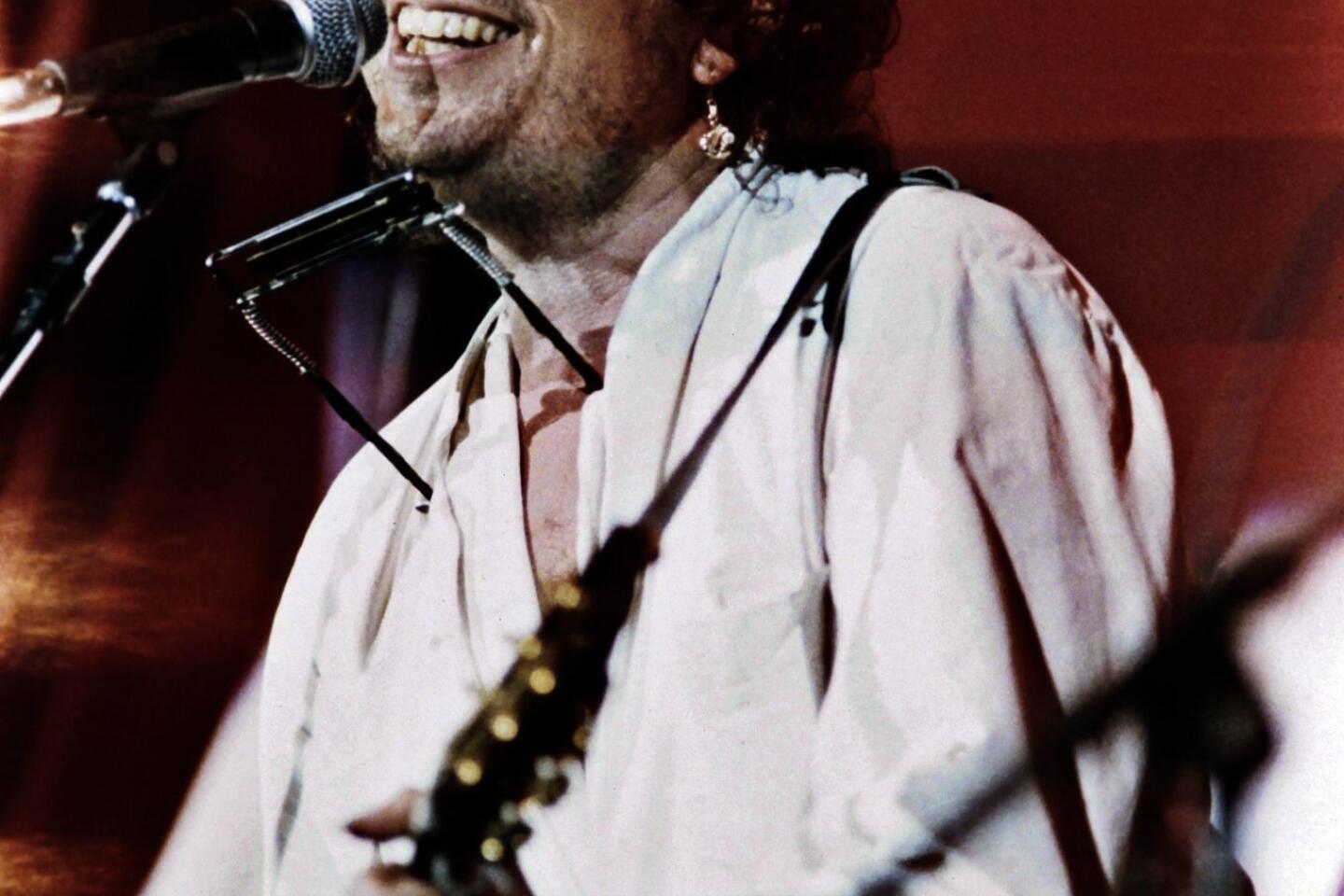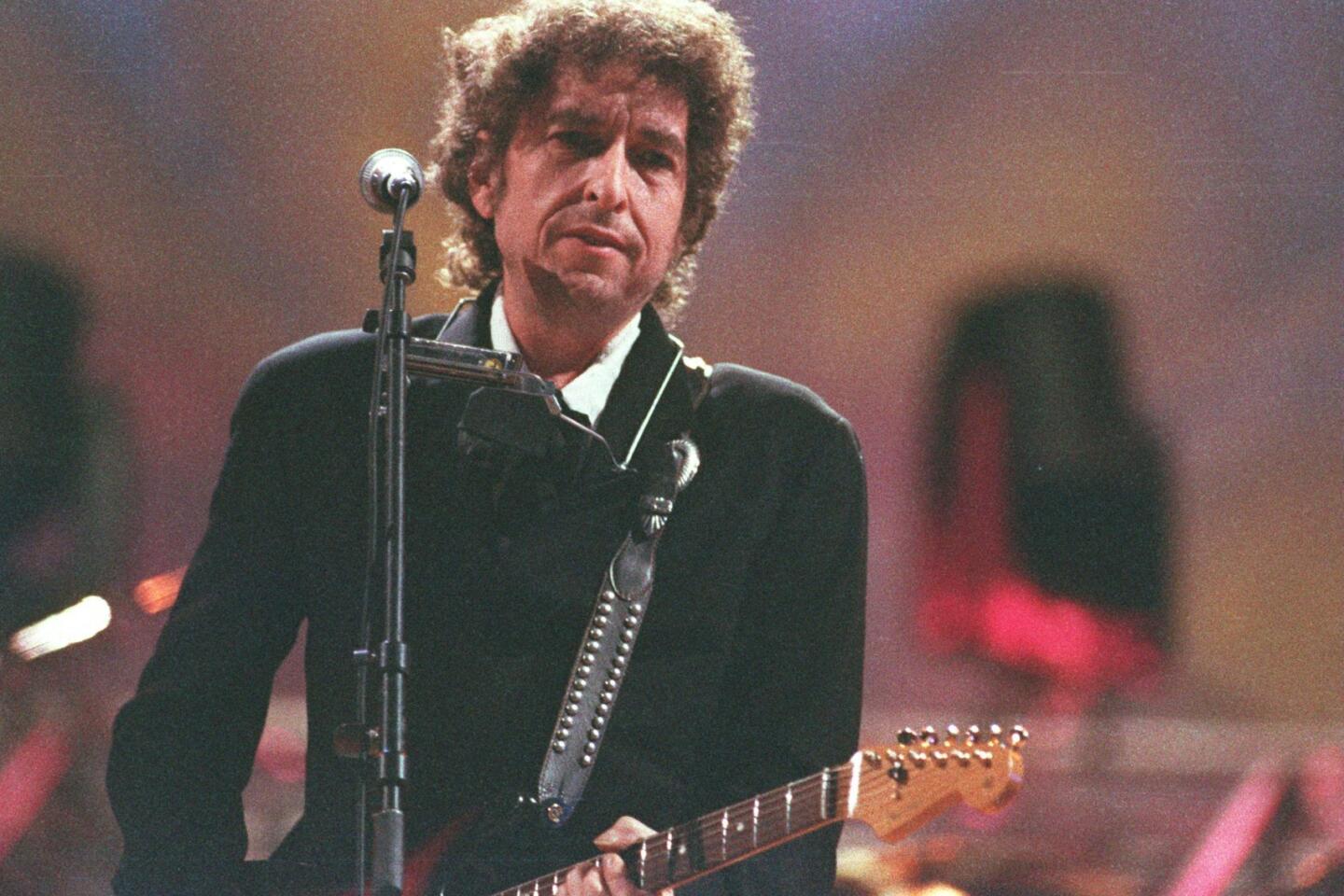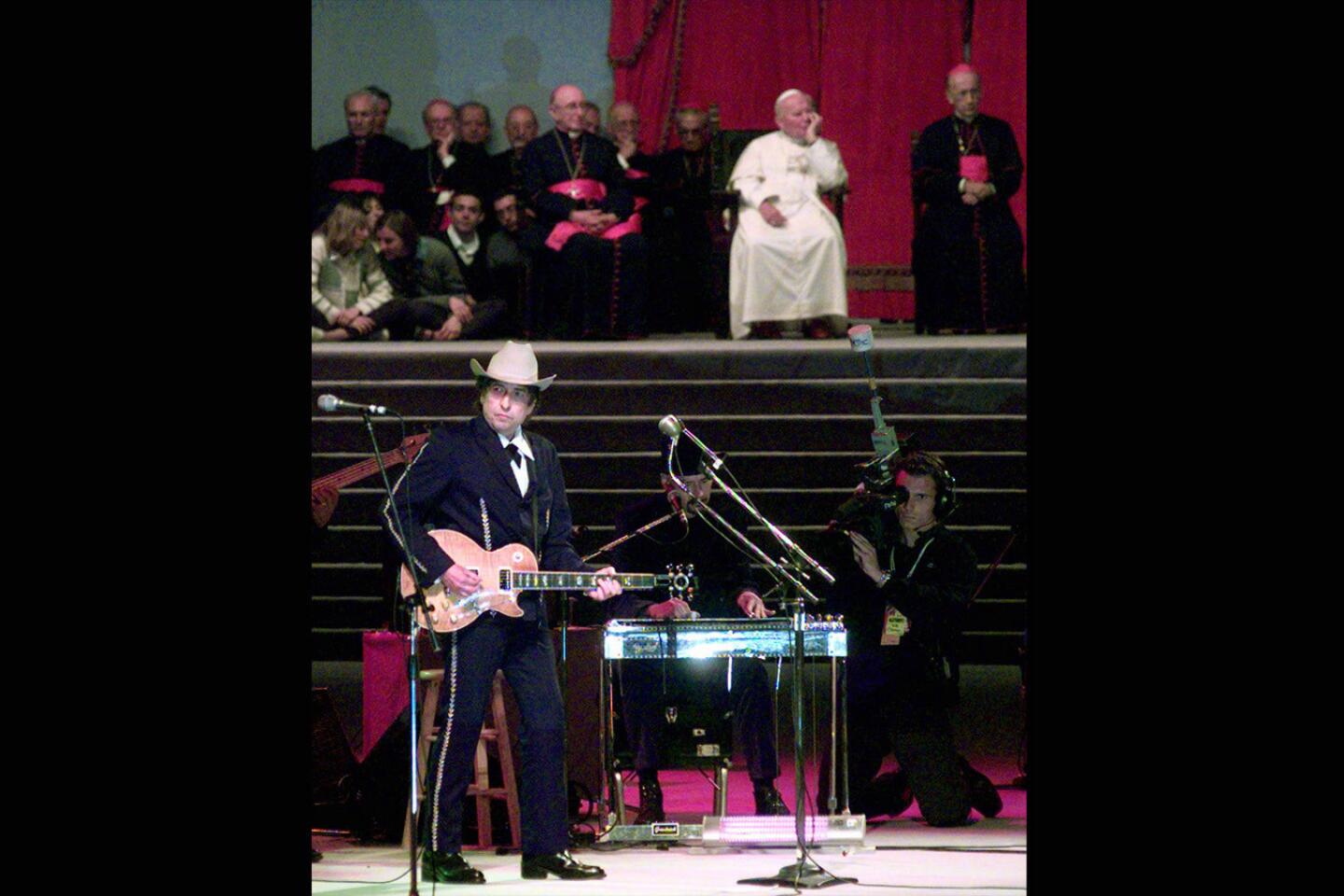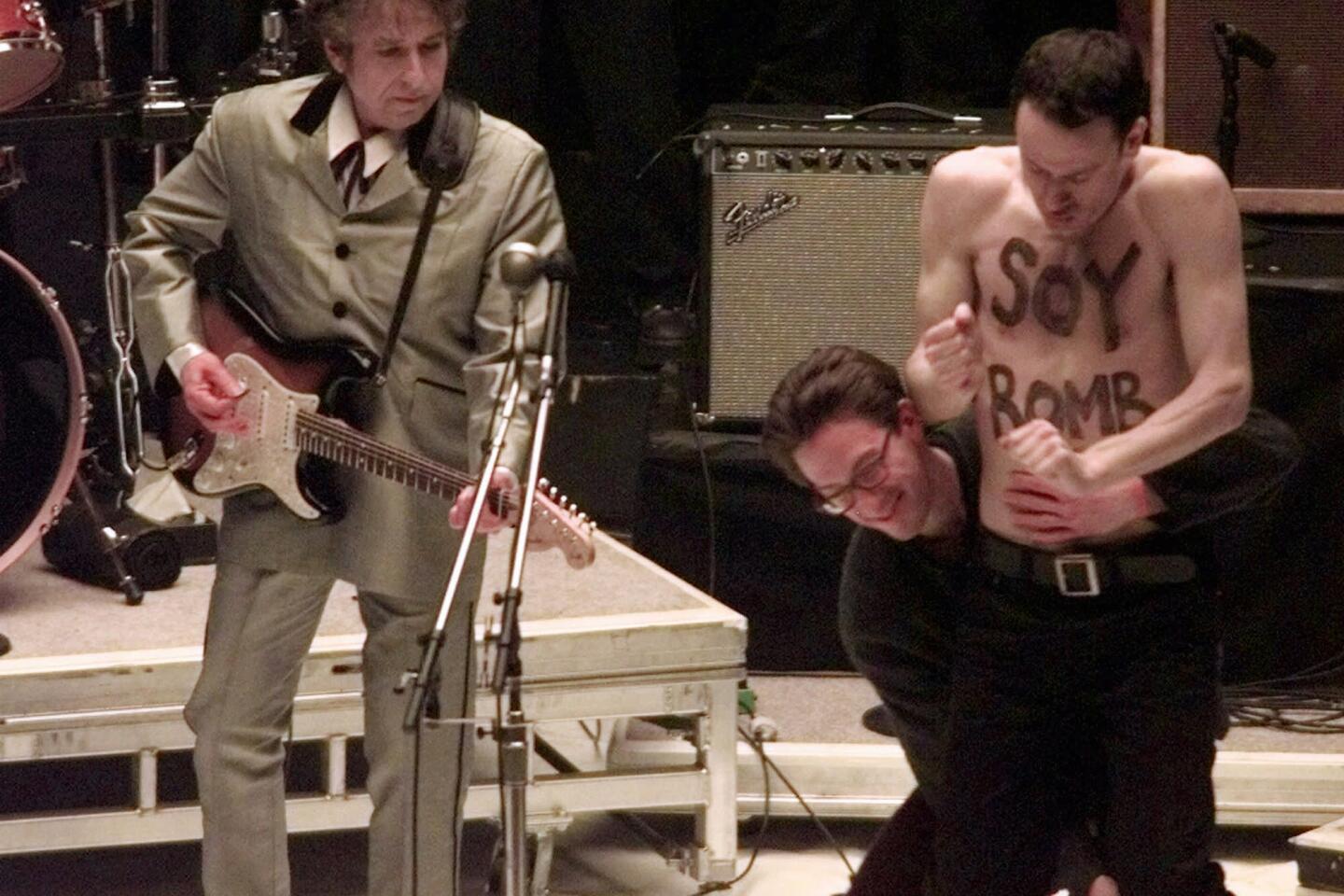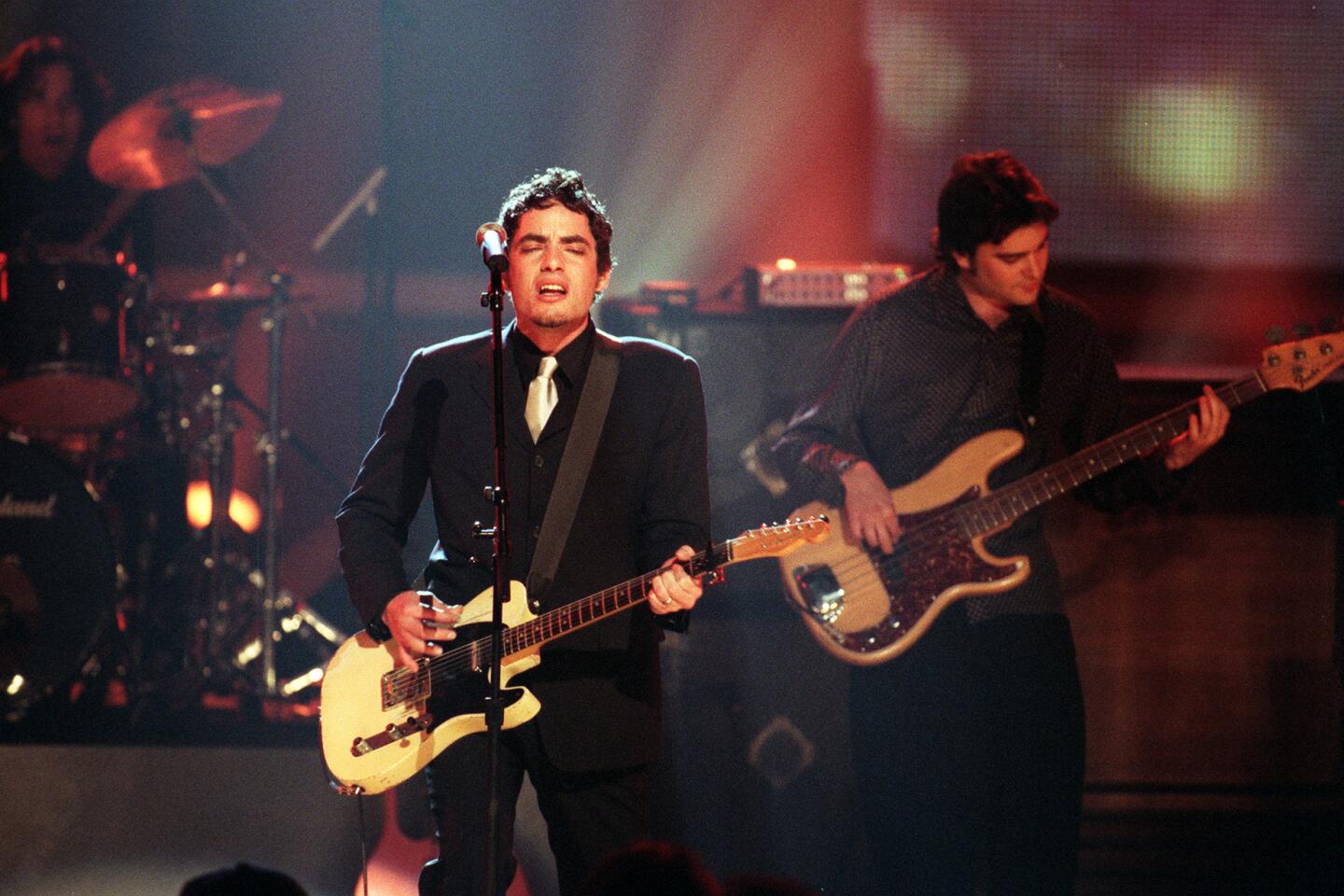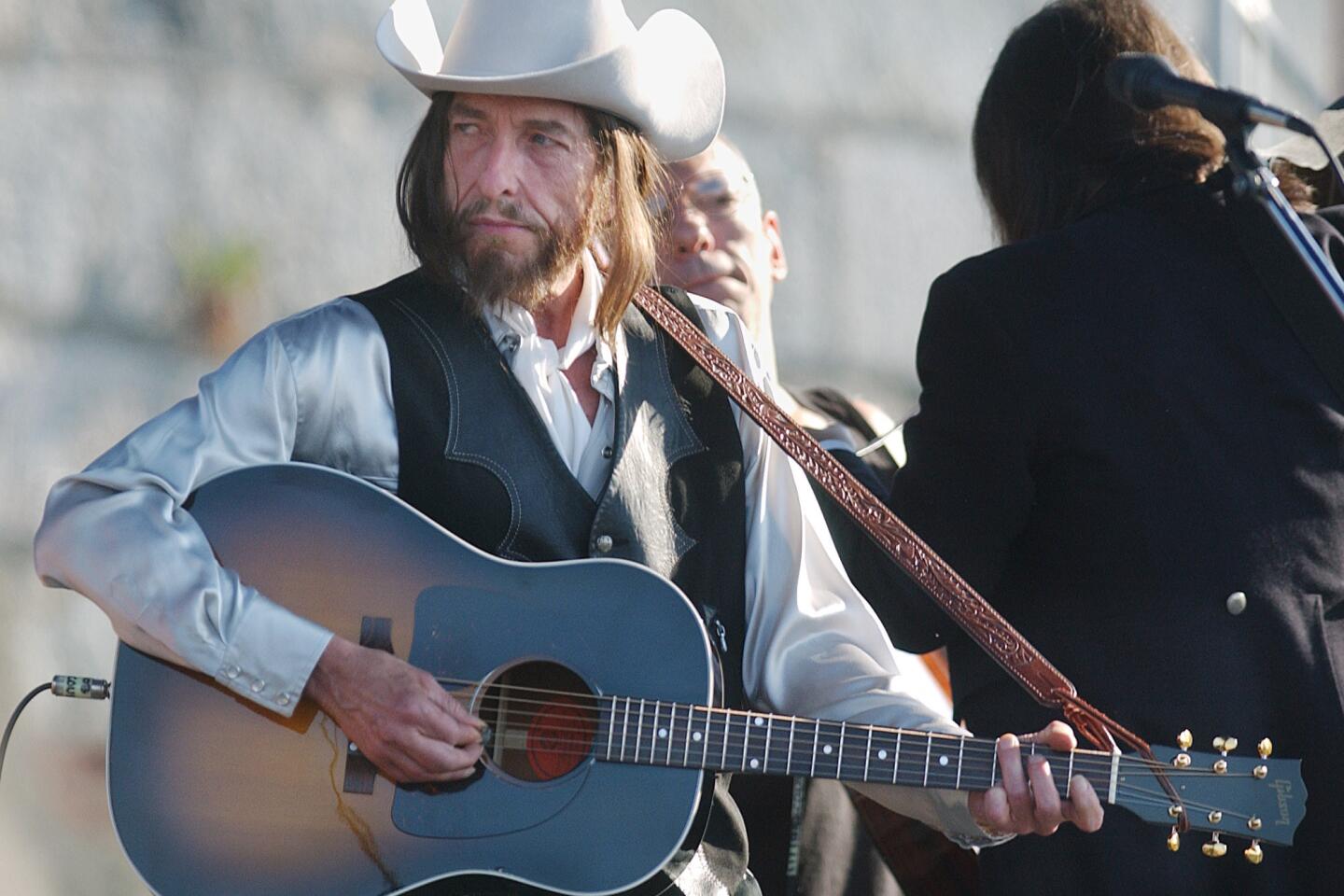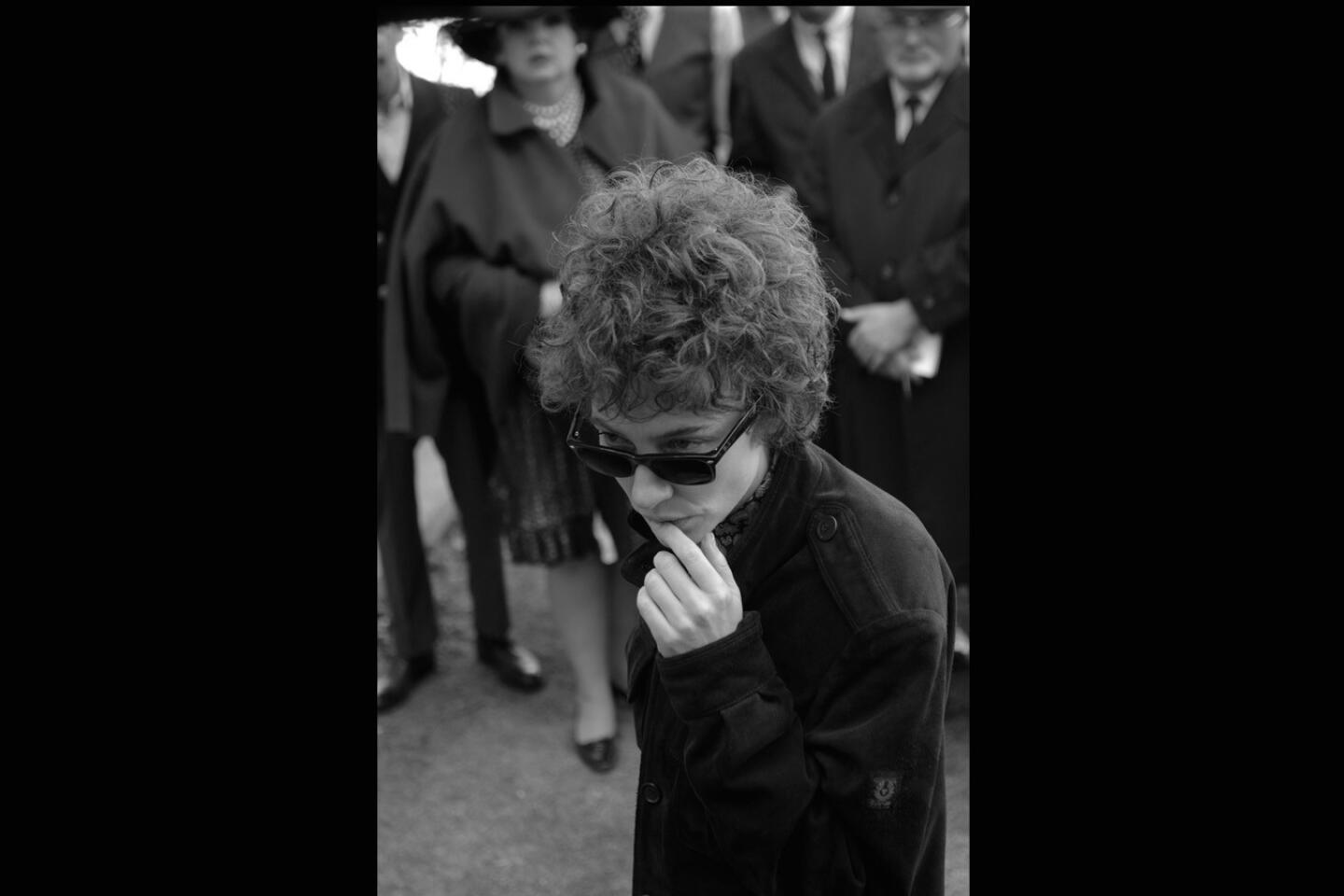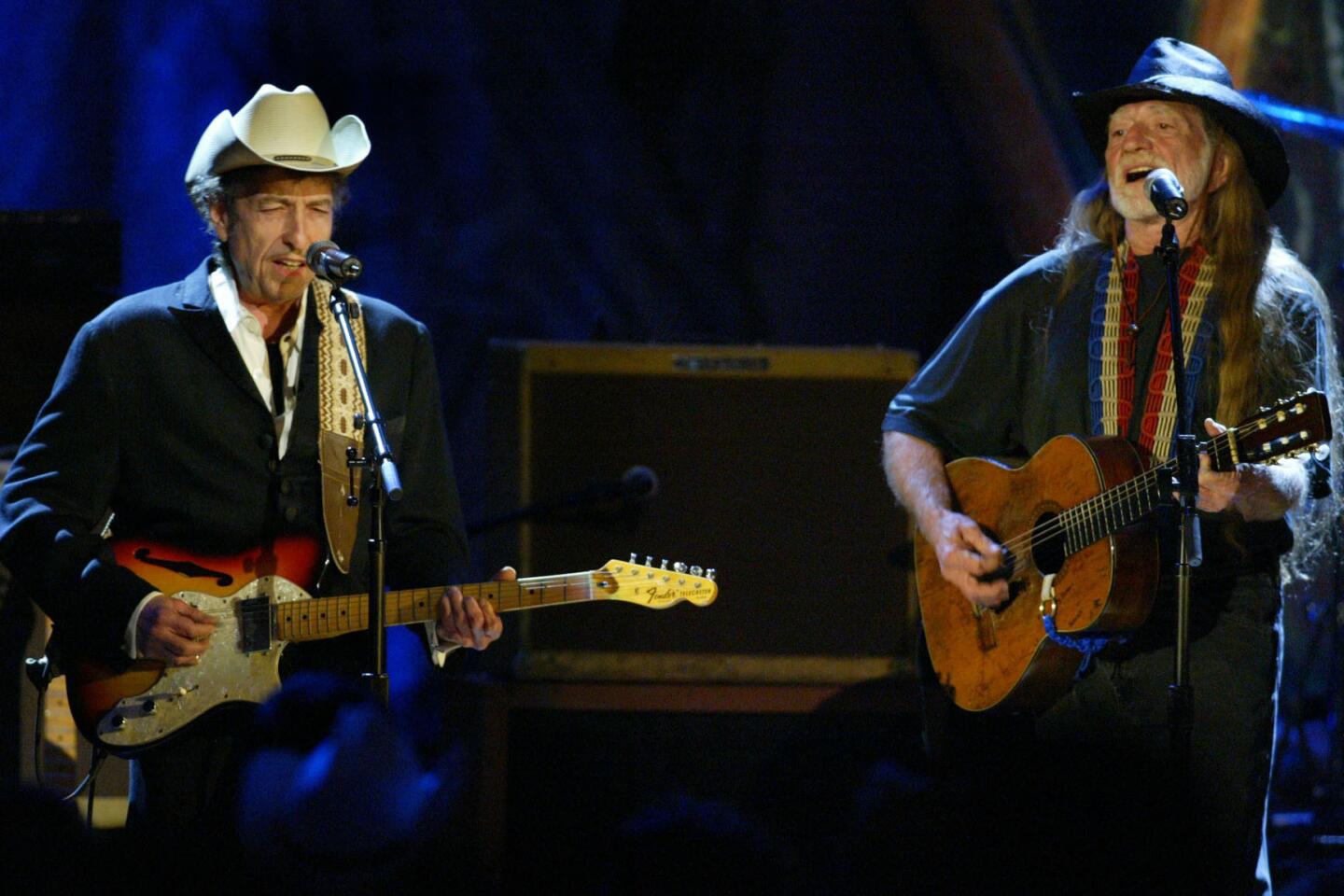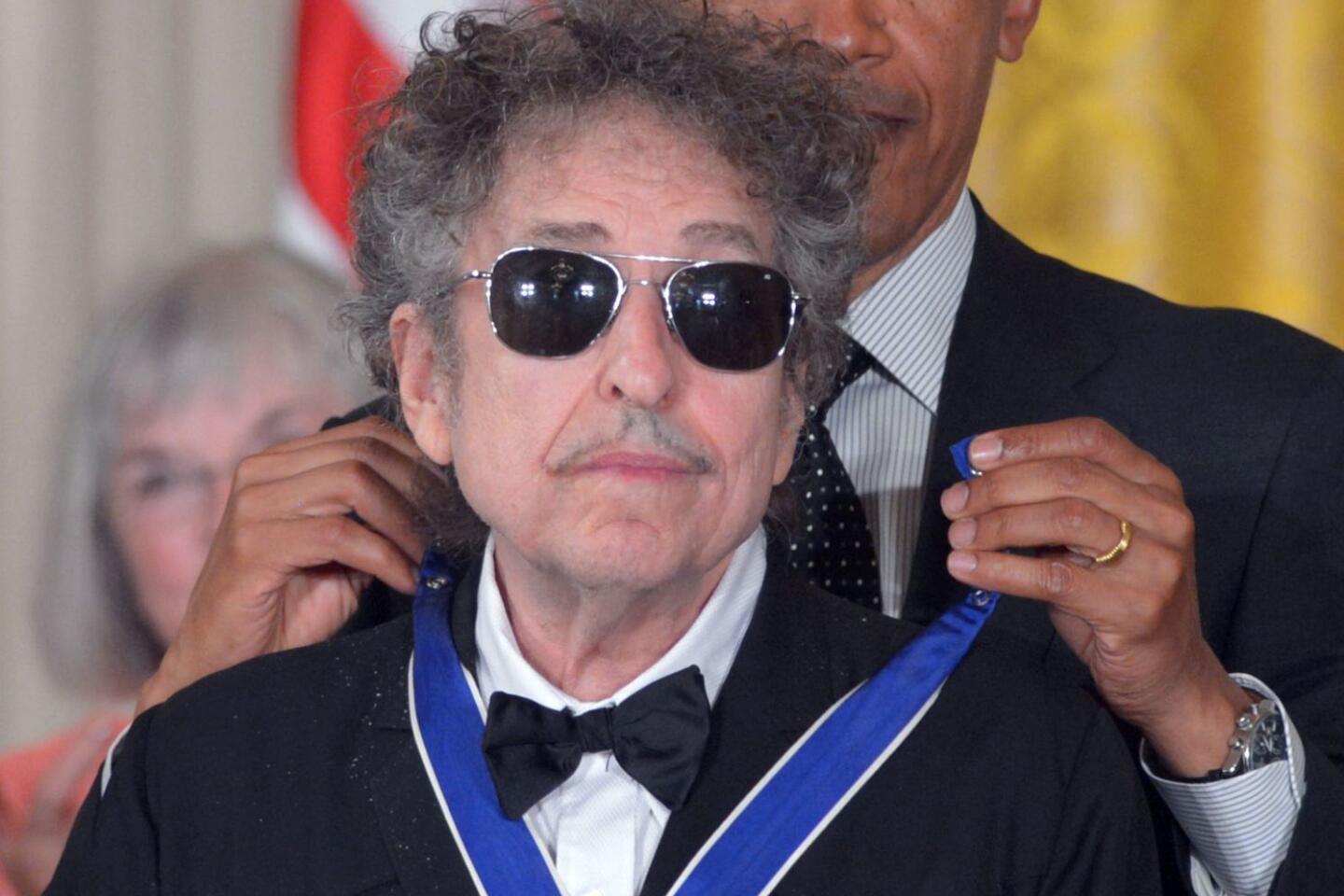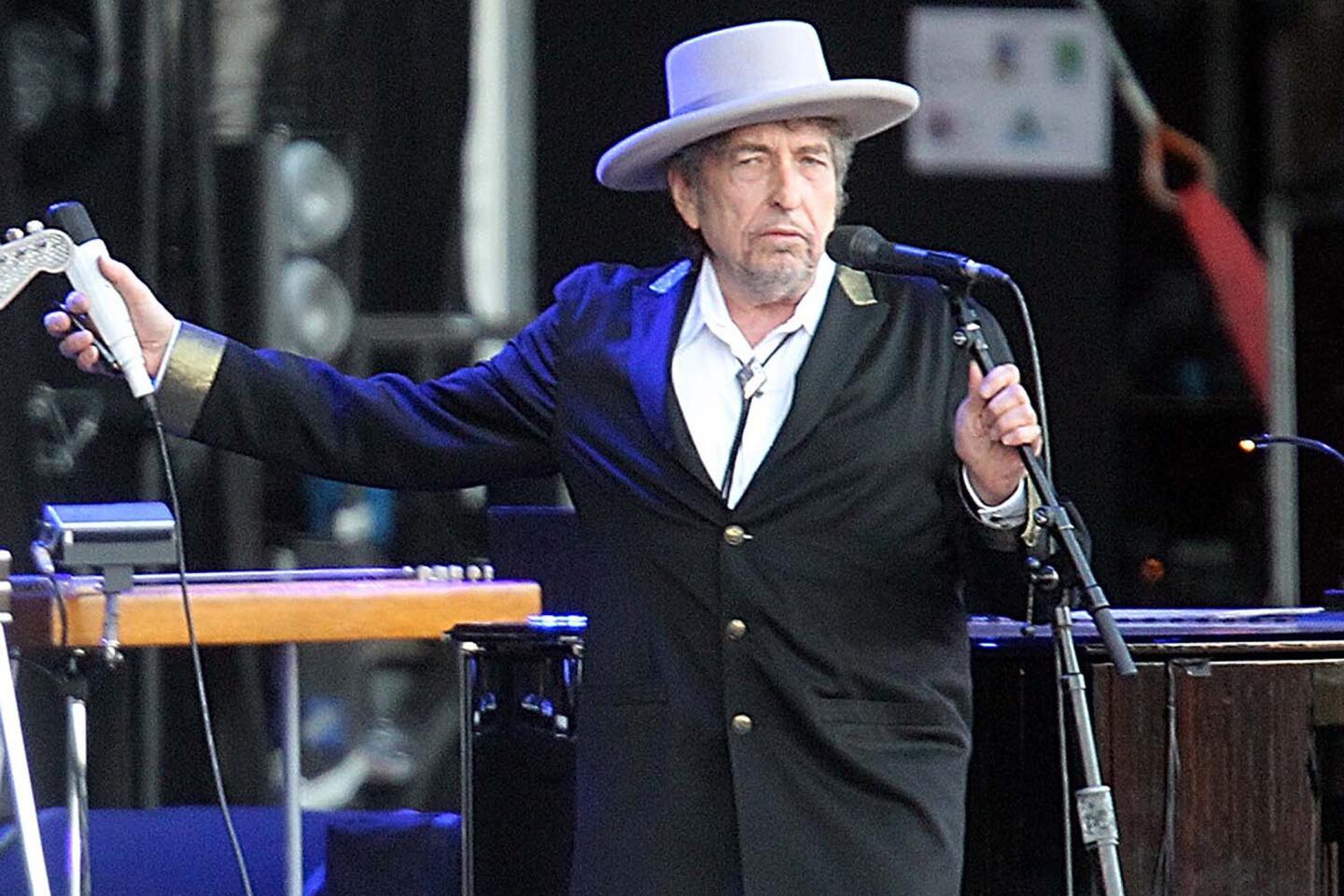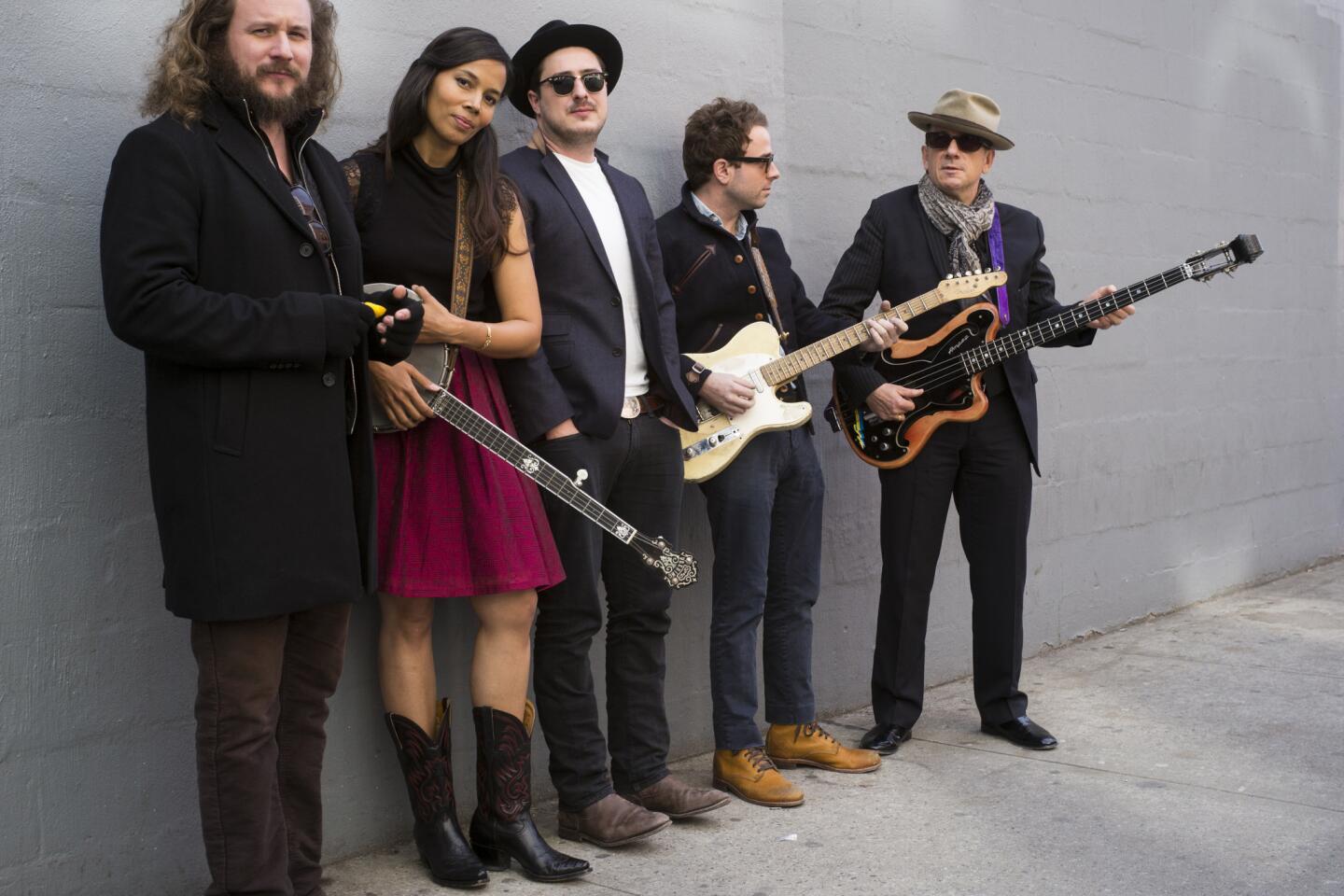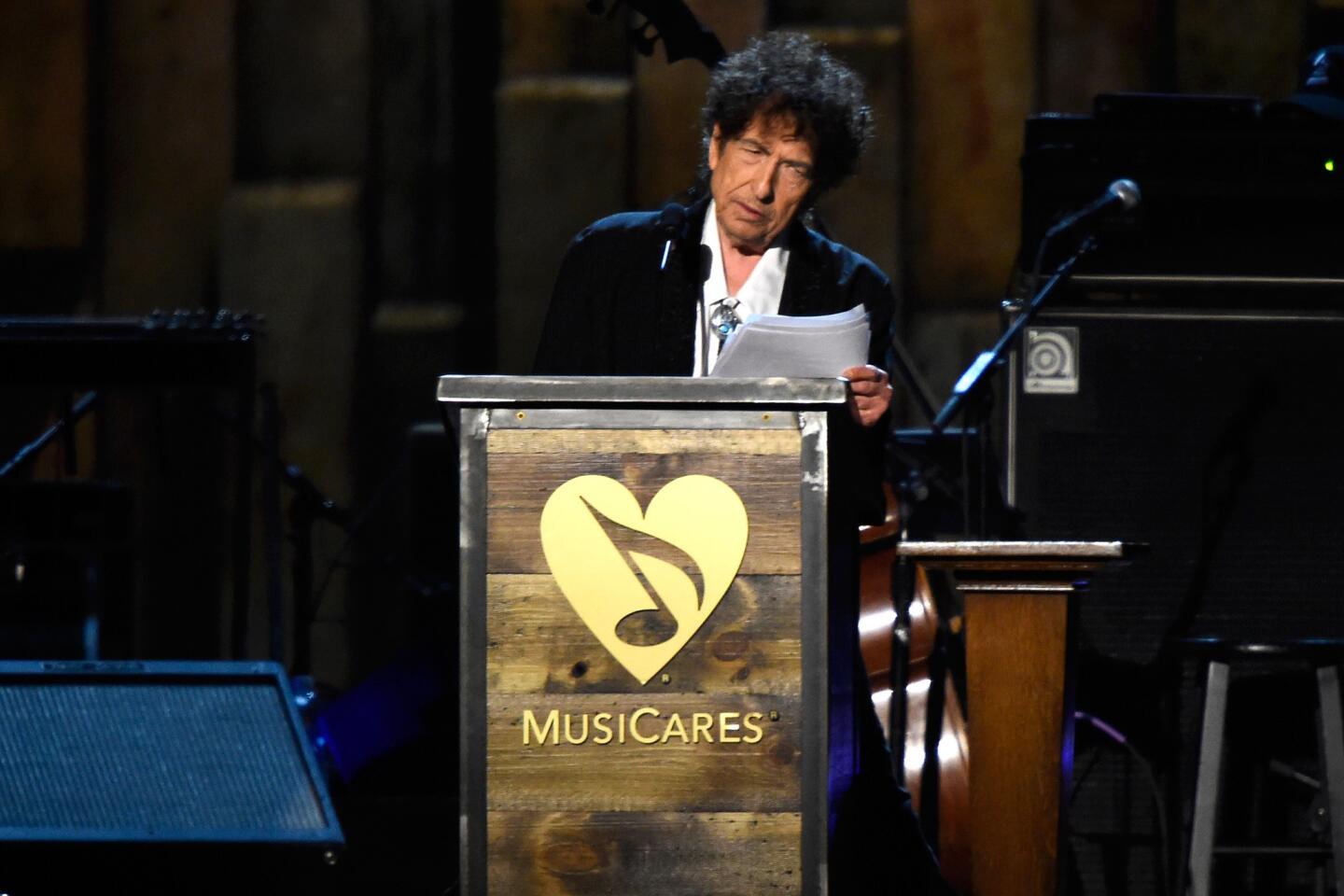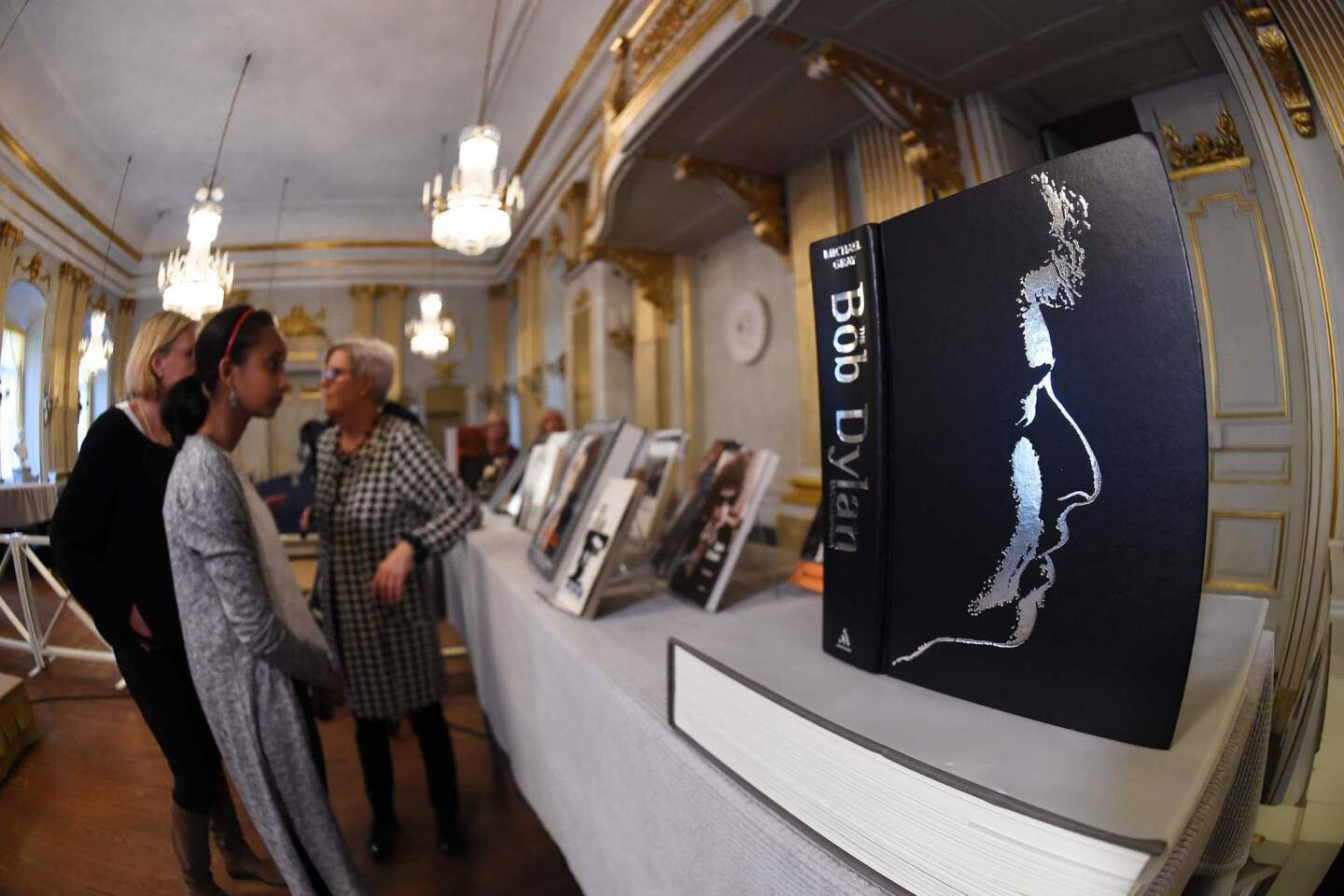The six best Bob Dylan moments on film
- Share via
Bob Dylan’s well-deserved Nobel Prize for literature on Thursday — turn envious and curmudgeonly if you must, elitist compatriots — makes us want to engage deeply with Elston Gunn and all that followed. To listen to that well-worn copy of “Blood on the Tracks,” or pull out the hardback version of “Chronicles: Volume One,” or plunge into some of his enigmatic, digitally archived classic interviews.
But the Nobel announcement also evokes something else: the best Dylan moments on film.
Many such scenes come from movies of just the past few decades — in part because of Dylan’s growing willingness to license his songs, in part because of his continuing relevance/new tracks, in part because that’s a prime period a generation raised on Dylan has been making movies — and dreaming of the perfect Bard complement.
Given the cinematic qualities of his songwriting, It’s no surprise Dylan tunes would be featured in so many films. “You know, Bob loves movies, and he can write these movies that take place in eight to 10 minutes, yet seem as full or fuller than regular movies,” biographer Clinton Heylin once wrote. And so we compiled and ranked them.
Only included here are examples where a Dylan recording is played, no covers. The latter could more than fill its own list — apologies, Roger McGuinn and “Easy Rider.”
This list also isn’t a rundown of the best Dylan songs; all the movies aren’t necessarily great, or even good. They’re moments that mark the best use of his songs, the instances in which his notes and lyrics blend with images in ways that go beyond potent. Read and offer up your innocence; you won’t be repaid with scorn.
6. “High Fidelity”/”Most of the Time”
A heartsick John Cusack and a heartfelt Dylan were made for each other. They’re exactly what we get when Cusack’s Rob Gordon steps into the rain trying to cope with the pain of a girlfriend who’s split in the hit Hornby adaptation. Then “Most of the Time” and its message of almost-past-it comes beckoning, and it makes Rob, and us, feel a little better.
Or as Jack Black reassures a disoriented customer as he hands the lost soul a vinyl copy of “Blonde on Blonde,” (the album singled out by the Nobel committee) “It’s gonna be OK.”
5. “I’m Not There”/”Blind Willy McTell”
Any list of Dylan songs has to include the quintessential Dylan movie “I’m Not There” (or rather the quintessential Dylan narrative movie; we know about the other one).
Todd Haynes went toe-tapping and confounding with his look at this many personae of Dylan in his 2007 don’t-call-it-a-biopic. The Dylan musical moment that unexpectedly packs punch? We’ll go out on a limb and say when Marcus Carl Franklin as a young, train-hopping “Woody Guthrie” (“This Machine Kills Fascists”), is paired with “Blind Willy McTell.”
As Guthrie makes his music pilgrimage, Haynes loops in Dylan’s neglected 1983 recording, undergirding the scene with Dylan’s portrait of slavery and classic Americana. “Nobody can sing the blues like Blind Willie McTell,” indeed.
4. “Wonder Boys”/”Things Have Changed”
The occasion of Dylan’s only Oscar — another honor that had people buzzing in all directions — the song captured the growing self-destruction of Grady, Terry and the rest of the Michael Chabon-derived world. “People are crazy and times are strange / I’m locked in tight, I’m out of range / I used to care, but things have changed.”
Thing is, Dylan wasn’t so sure about writing the original tune until the late Curtis Hanson, who directed “Wonder Boys,” convinced him, as the songwriter reminds in his 2001 Academy Awards speech.
Fortunately, Dylan gave in, and we ended up with one of the great original movie tracks of the past 20 years. We’ll let him explain the appeal. It’s “a song that doesn’t pussyfoot around, no turning a blind eye to human nature.”
3. “The Hurricane” and “Dazed and Confused”/”Hurricane”
Same song, two very different contexts.
The 1976 Dylan staple is of course the anchor track of the Norman Jewison film 23 years later, starring Denzel Washington as wrongfully convicted boxer Rubin Carter. Heck, the track — “Pistol shots ring out in the barroom night / Enter Patty Valentine from the upper hall / She sees a bartender in a pool of blood / Cries out my God, they killed them all” — practically makes for a screenplay in its own right.
But there’s also the way it’s used to score Wooderson’s big entry to the Emporium in “Dazed and Confused,” slyly giving the impression of Matthew McConaughey’s own deluded sense of his importance. Thematic connections may otherwise seem scant, but Richard Linklater’s pairing of the song of a boxer done wrong with his antihero isn’t as left field as you think — both concern coulda-been champions. Brilliant.
2. “St. Vincent”/”Shelter from the Storm”
The movie had ended; the credits were coming on. And here’s Bill Murray’s snarky old coon from Ted Melfi’s 2014 coming-of-ager singing along — mostly badly — to “Shelter from the Storm” in what amounts to a kind of musical epigraph.
The sounds of Dylan and Murray in unintentional duet is enough to vault this near the top of any list. The notion of a man that misanthropic singing a song of such vulnerability makes it all the better.
Note, too, the way Murray keeps trying to tame the garden hose but can’t get it right — just the kind of jagged human detail Dylan himself specializes in. Murray’s character ain’t looking for nothing in anyone’s eyes, yet, in his way, he’s also got nothing but affection for those who sail with him.
1. “Pat Garrett and Billy the Kid”/”Knockin’ on Heaven’s Door”
An icon behind the camera, another on its soundtrack — and in front of the camera, too..
Decades before Axl Rose would make it a Gen-X staple, Bob Dylan was putting his guns in the ground with his track for the (retroactively beloved) Sam Peckinpah western — which, oh, yes, Dylan stars in too, alongside the likes of Kris Kristofferson and Jack Elam.
The song plays over a key death scene in a way that narrates the action without commenting on it. Crazily, Peckinpah hadn’t included it in an early cut. It made subsequent ones. and the long black cloud came down.
Dylan’s lyrics — barely 10 lines — tell sparely of mortality and violence. The resonance doesn’t stop there. The song’s use in a movie that, for all its western clothing, is about generational divides makes it all the more apt. As Kristofferson put it, “‘Knockin’ On Heaven’s Door’ was in that scene where Slim Pickens was dying, and it was the strongest use of music that I had ever seen in a film.” Amen.
See the most-read stories in Entertainment this hour »
On Twitter: @ZeitchikLAT
ALSO
Online, some wonder if Bob Dylan really needs a Nobel Prize
More to Read
Only good movies
Get the Indie Focus newsletter, Mark Olsen's weekly guide to the world of cinema.
You may occasionally receive promotional content from the Los Angeles Times.
